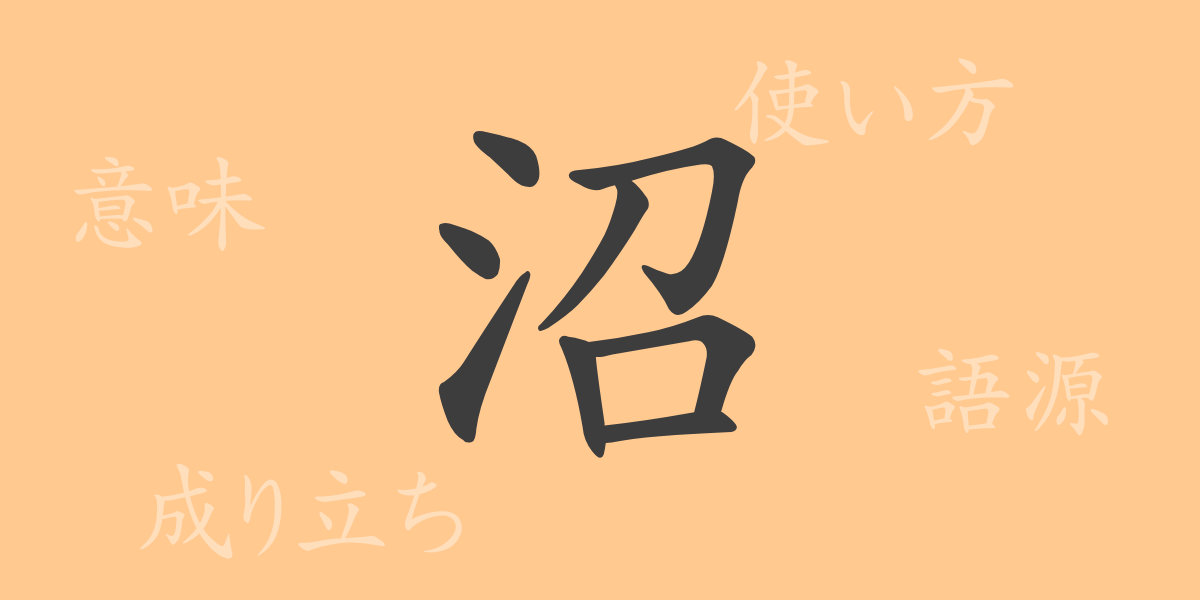Japanese kanji, each with its own beauty and profound meaning, enrich the language’s character. The kanji ‘沼’ (しょう) is particularly fascinating as it symbolizes the interaction between nature and humans. This article delves into the origins, modern usage, and the rich world embodied by ‘沼’, from its etymology to its readings, stroke count, radicals, and its presence in idioms and phrases.
Origins of 沼 (しょう)
The kanji ‘沼’ has been used since ancient times in China to denote water environments. It originated from ancient Chinese characters meaning places where water accumulates, like lakes or marshes. Comprising ‘氵’ (さんずい), which signifies water, and ‘召’, indicating a gentle flow, the character visually represents a waterside landscape.
Meaning and Usage of 沼 (しょう)
‘沼’ refers to natural ponds or lakes formed by accumulated water. Broadly, it can also encompass wetlands or peatlands. It is used to describe natural environments, place names, and metaphorically, such as in the phrase ‘沼にハマる’ (stuck in a swamp), depicting someone deeply engrossed in something from which they cannot escape.
Readings, Stroke Count, and Radical of 沼 (しょう)
The kanji ‘沼’ offers intriguing details about its structure and pronunciation:
- Readings: The on’yomi (Sino-Japanese reading) is ‘しょう’, and the kun’yomi (native Japanese reading) is ‘ぬま’.
- Stroke Count: ‘沼’ consists of 12 strokes.
- Radical: The radical is ‘氵’ (さんずい), categorizing it among kanji related to water.
Phrases and Idioms Using 沼 (しょう) and Their Meanings
There are numerous idioms and phrases involving ‘沼’. Here are a few examples:
- 湖沼 (こしょう): A term collectively referring to lakes and marshes.
- 沼地 (ぬまち): Muddy, waterlogged ground.
- 沼沢 (しょうたく): Refers to marshes or wetlands.
- 沼泥 (しょうでい): Mud accumulated at the bottom of a marsh.
Conclusion on 沼 (しょう)
The kanji ‘沼’ not only depicts watery landscapes but also enriches our language with deep meanings. From its historical roots to its modern applications, the expressive power of this single character symbolizes the beauty of Japanese. Whether representing a part of nature or metaphorically illustrating human emotions and situations, ‘沼’ plays a crucial role in our language. We hope this article has unveiled new aspects of ‘沼’ and deepened your understanding of its nuances.

























